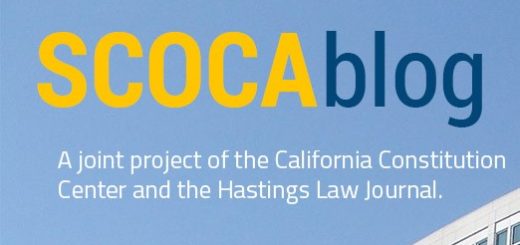Hail and farewell, Madam Chief Justice
California’s Chief Justice Tani Cantil-Sakauye will retire, she announced this morning in a media conference. Chief Justice Cantil-Sakauye will not file for retention election, and will vacate her position when her term ends in January 2023, having served a full 12-year term as California’s highest judicial officer. Appointed by Governor Arnold Schwarzenegger, she assumed office on January 3, 2011. She will be 63 when she leaves office, having served 32 years on the bench since Governor George Deukmejian first appointed her in 1990. Like her colleagues justices Carol Corrigan and Martin Jenkins, Cantil-Sakauye served at every level of California court...




